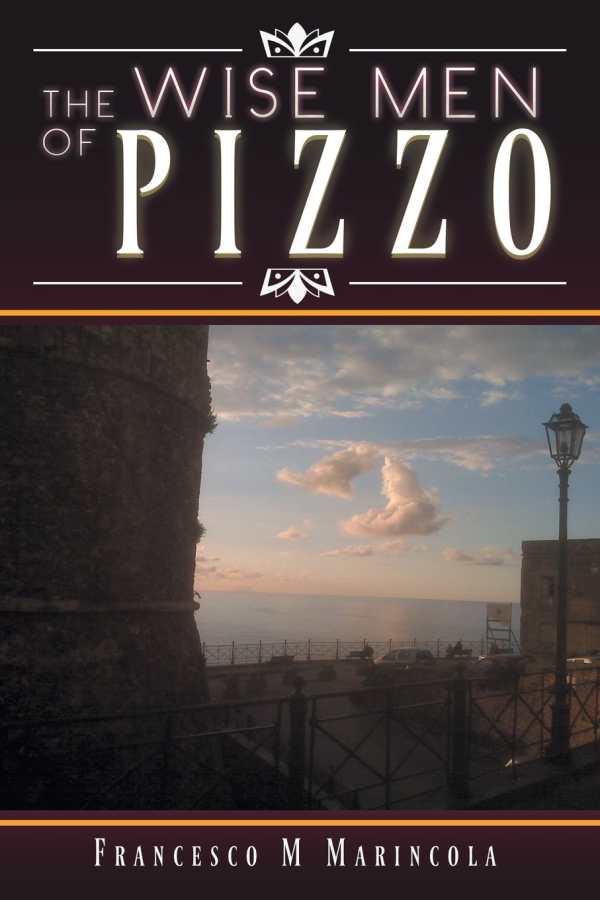
The Wise Men of Pizzo
This gently measured tale is filled to the brim with gorgeous language.
The Wise Men of Pizzo, the first work of fiction from Francesco M. Marincola, is an unexpected little gem, a love letter to small towns forgotten in the frenetic pace of modern life. These are good places to take stock, regroup, and ask, “What is a purposeful life?”
Giuseppe returns to his native Pizzo, Italy, for a time-out from his life. He finds it difficult to adjust to the elegiac Pizzo, having lived in bustling cities for decades. To pass the time, he joins the daily convention of elderly gentlemen in the town’s piazza (“the parlour of Pizzo”) where talk turns to the life and times of one of Giuseppe’s childhood friends, Alessandro.
There is no action in The Wise Men of Pizzo; this is a gently measured tale. It’s atmosphere and ideas, language and imagery. The eponymous wise men gather daily to languidly diagnose the world’s problems amid refreshments. The talk is wide-ranging: politics, medicine, religion, physics, philosophy, technology, and history.
We learn much about these men with the odd exception of Giuseppe, who remains a cipher. Alessandro, though absent, is the most developed, if guarded, character. The wise men are sympathetic, with interesting backstories; Marincola has an obvious affection for his brain trust. “Problems that could not be wholly embraced by philosophers and scholars were dissected with simplicity by the good-hearted wise men.”
There is an abundance of droll humor in Pizzo.:
“What stringa theory here and stringa theory there? That Pinuzzo is so spacey that he could not even use a stringa to tie his shoes!” Thereby settling with such eloquent, persuasive, and conclusive logic a salient and controversial topic of contemporary physics.
This novel is filled to the brim with gorgeous language. A description of a room becomes a meditation on growing up:
It had four walls, cold even in summer, and two windows. Those were the limits, but the horizons were within because children’s imagination does not require expanses. As life takes its course, knowledge chains the imagination, and as our experience expands, larger distances are needed to approach the novel.
Marincola’s imagery and description are evocative and his unexpected word choices are welcome. At sunset: “From that point high above the rocks, the dreams are set free to navigate over the shiny carpet laid over the sea by the sun towards the horizon.”
Unfortunately, the story does not begin until page 17 due to an unnecessary letter, foreword, and preface. There are numerous footnotes, most of which should be eliminated. Marincola should trust audiences know who Robespierre and the Karamazov brothers are.
Marincola has created a pervasive atmosphere of Old World charm and an affecting intimacy. There’s nothing profound or extraordinary in these lives except that most lives are profound and extraordinary to those living them. The Wise Men of Pizzo is a cautionary tale of missed opportunities and decisions not made, as well as a meditation on the cyclical nature of time.
Reviewed by
Michelle Newby
Disclosure: This article is not an endorsement, but a review. The publisher of this book provided free copies of the book and paid a small fee to have their book reviewed by a professional reviewer. Foreword Reviews and Clarion Reviews make no guarantee that the publisher will receive a positive review. Foreword Magazine, Inc. is disclosing this in accordance with the Federal Trade Commission’s 16 CFR, Part 255.
